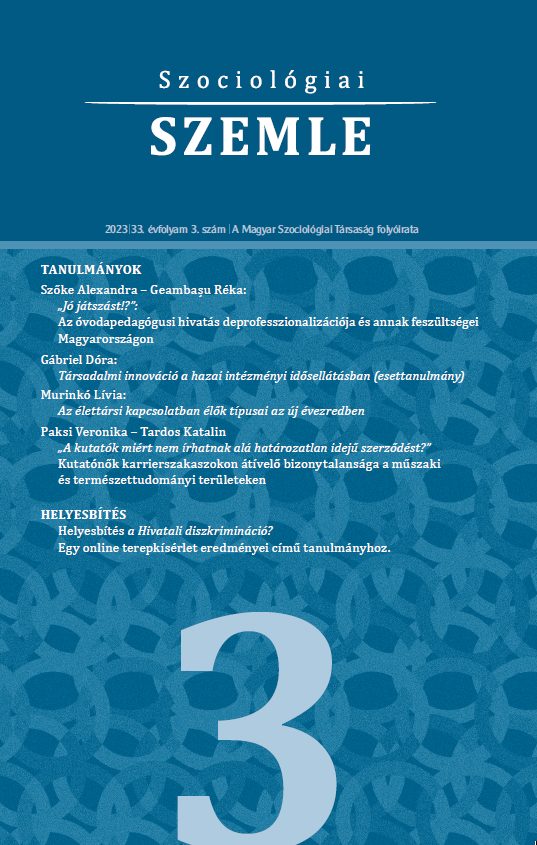„Why can’t researchers sign a contract of indefinite duration?”
Career insecurity of female researchers in STEM fields
Abstract
Precarious working conditions have already affected the employment of highly skilled professionals, and the scientific world is no exception. Young researchers, especially women, face greater insecurity than their older or male counterparts; women, for example, are more likely to be employed on short-term, non-tenure-track teaching contracts. Working in male-dominated STEM fields can create further obstacles for women, and especially mothers, as they typically have to meet the demands of scientific excellence in an environment that is less supportive of them. This paper therefore explores the precarious working conditions and their effects on women working in STEM fields in Hungary. Our qualitative empirical research involved fifty-three individual and group interviews with female researchers in their early, mid and mature stages of their careers (PhD students and doctoral holders). The results show that even the most highly qualified and prestigious academic jobs do not provide the expected protections for female researchers. Different types of precarity, such as contractual precarity based on gender discrimination or income insecurity, accompany them throughout their careers. Women suffer from the effects of insecurity at personal, workplace, career and organisational levels, which undermine their professional excellence and progress, as well as their well-being and work-life balance.





